Study, work or travel in the UK. British
culture and life.


Korean Festival in Kingston
|
|
Study, work or travel in the UK. British
culture and life.
|
|
||
|
|
|
|
||
 |
||||
|
|
|
|
||
|
|
||||
 |
||||
|
Korean Festival in Kingston
|
||||
|
OPENING CEREMONY
|
 A Korean rallying cry: raise both arms and call out "Mansay!" |
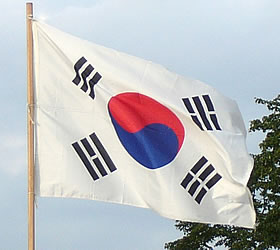 The South Korean flag |
|
VETERANS PARADE
|
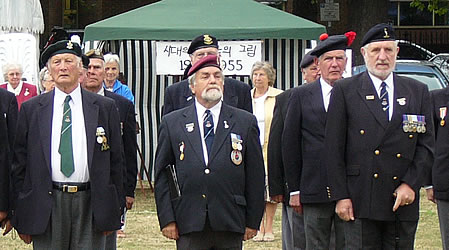 Veterans wear their medals |
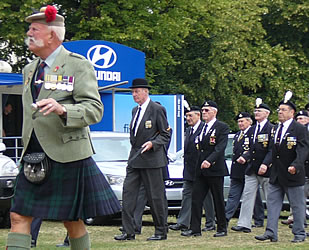 The former soldiers march around the park ... |
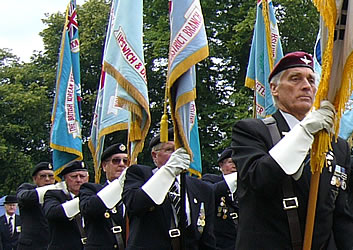 ... carrying the flags of the regiments which they served |
 |
The
Korean War (history book) Author: Max Hastings Publisher: Pan Date: Jan 2000 |
 |
Britain,
Southeast Asia and the Impact of the Korean War Author: Nicholas Tarling Publisher: Singapore University Press Date: Aug 2005 |
|
TAE KWON DO
|
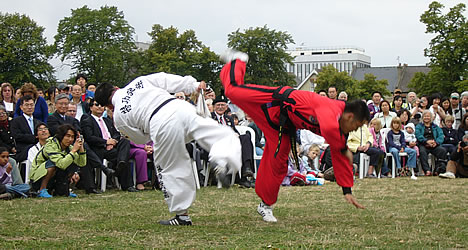 Practice includes carefully controlled fighting between two members |
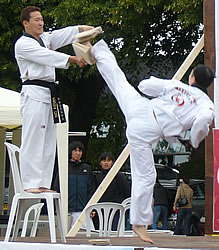 Breaking of boards ... |
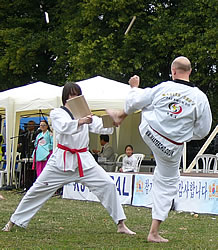 ... by foot ... |
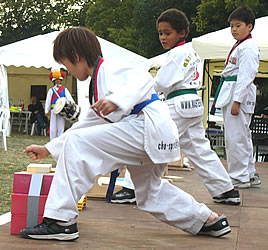 ... or by hand |
 |
Tae
Kwon-do: White Belt to Yellow Belt Author: Official Taekwondo Association of Great Britain Publisher: A & C Black Date: 1995 |
 |
Tae
Kwon-do: Green Belt to Red Belt Author: Official Taekwondo Association of Great Britain Publisher: A & C Black Date: May 1997 |
 |
Tae
Kwon-do: The Black Belt Syllabus Author: Official Taekwondo Association of Great Britain Publisher: A & C Black Date: May 1997 |
|
TRADITIONAL KOREAN WEDDING
|
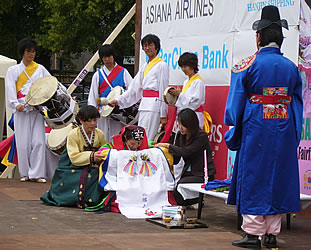 Each time the man bows, the woman bows twice |
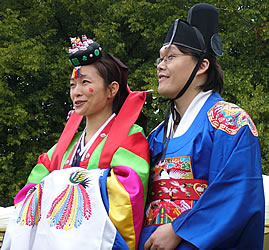 The married couple |
|
TRADITIONAL MUSIC & DANCE
|
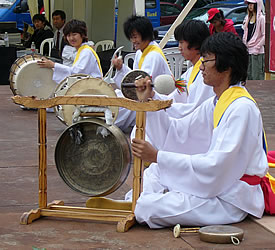 |
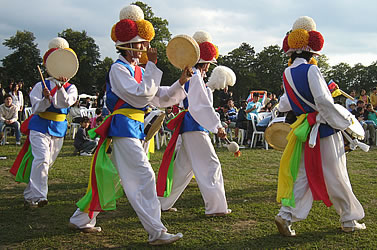 |
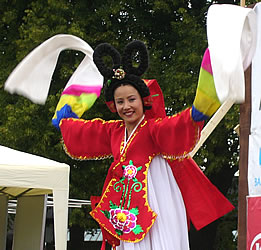 |
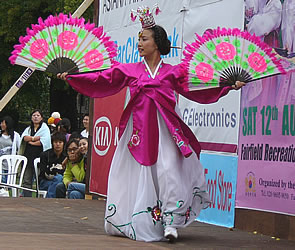 |
 |
P'ungmul:
South Korean Drumming and Dance Author: Nathan Hesselink Publisher: University of Chicago Press Date: Jul 2006 |
 |
Perspectives
on Korean Dance Author: Judy van Zile Publisher: Wesleyan University Press Date: Dec 2001 |
|
RAFFLE
|
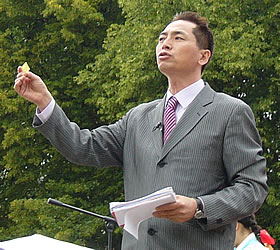 A raffle ticket is drawn |
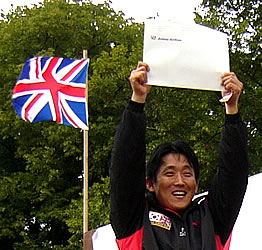 This lucky winner got a return ticket to Korea |
|
MODERN DANCE
|
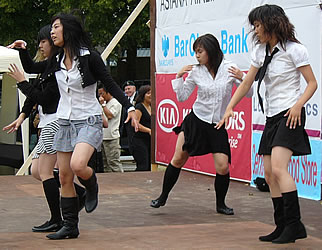 |
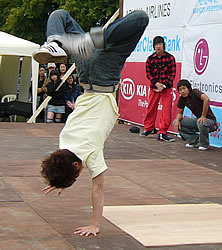 |
|
SINGING COMPETITION
|
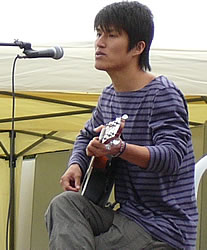 |
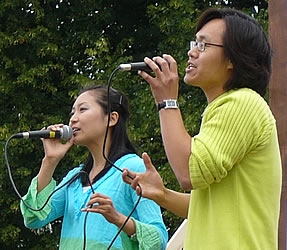 |
|
STALLS
|
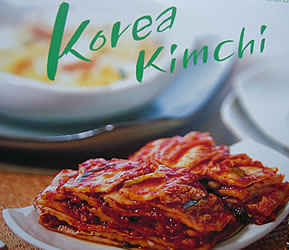 Kimchi is a spicy dish served with many Korean meals |
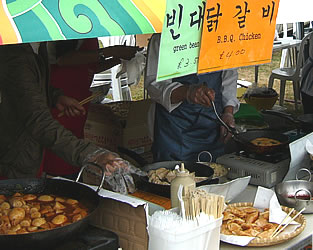 One of the food stalls, run by a Korean restaurant |
 |
Korean
Cooking (recipe book) Author: Young Jin Song Publisher: Aquamarine Date: Jun 2006 |
 |
South
Korea (guidebook for tourists) Author: Robert Nilsen Publisher: Avalon Travel Publishing Date: Feb 2006 |
|
FURTHER INFORMATION
|
 |
Berlitz
Korean-English Dictionary Publisher: Berlitz Guides Date: May 2004 |
 |
Mastering
Korean: Level 1 (language study) Author: B.Nam Park Publisher: Barron's Educational Series Date: Aug 2006 |
|
|
|